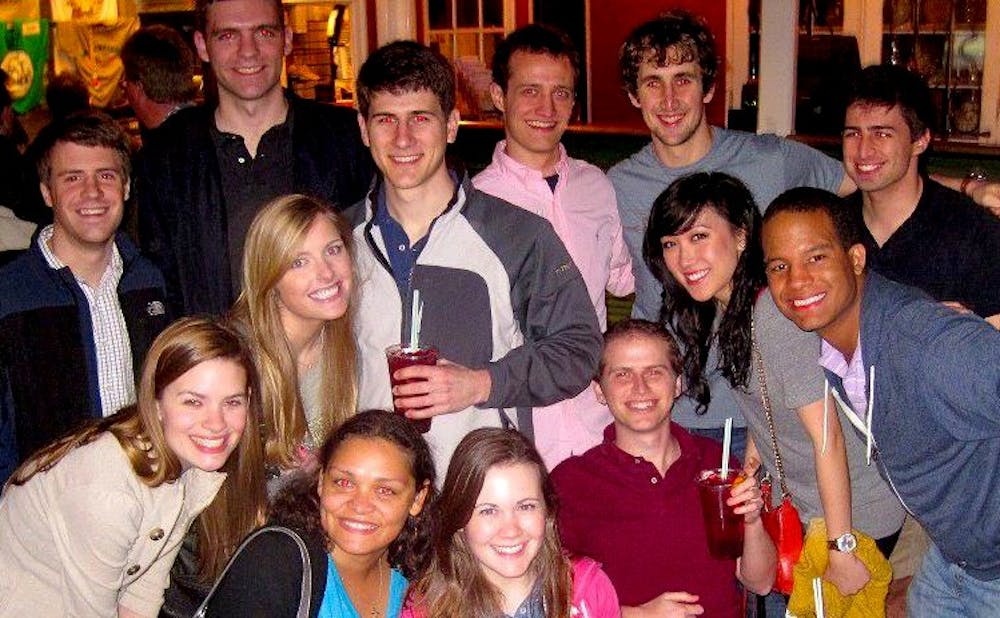Students can go on spring in Miami, Fla. and New Orleans, La. through a School of Law program.
Every year, the Law School sends as many as 42 students across the southern United States during Spring Break to put their newly-acquired legal knowledge to work for nonprofit organizations and government agencies. The program—Southern Justice Spring Break Trips—allows law students to gain pro bono experience as early as their first year. Students can then continue to participate every year throughout their law education.
The program began in 2002 as an idea from then-law student Jennifer Sikes, Law ‘03, initiating trips to the Equal Justice Initiative in Montgomery, Ala. and the Appalachian Citizens Law Center in Whitesburg, Ky. In the eleven years since, the program has expanded to Miami, Fla., Atlanta, Ga., New Orleans, La., Biloxi and Jackson, Miss. and Pembroke, N.C.
“It’s not just important for the law students to gain experience—it’s important for the communities we’re serving,” said Kim Burrucker, director of public interest and pro bono at the Law School. “We select low-resource locations in the south, where students get hands-on training with a lot of different aspects of the law.”
Burrucker noted that students often do not get much practical experience in their first and second years of law school, but the Southern Justice trips allow them to expand on and apply the theoretical knowledge that they’ve already gained in the classroom.
“Especially as a first- and second-year student, the courses are very theoretical, which makes it easy to lose sight of the practical,” said Michael D’Ippolito III, a second-year law student who participated this past spring. “This program allows you to apply skills you’ve learned at a very early time, so you don’t have to wait until you’re a more advanced student or until you graduate.”
Although the annual program lasts only one week, Burrucker said the Law School has built a strong rapport with these organizations over the past decade so that when students arrive, there is work waiting for them and every available hour is used to the fullest.
“The organizations that typically take students for the Southern Justice Spring Break Trip are often incredibly overworked and are more than willing to give students as much responsibility as they can handle,” second-year law student Jake Unger said.
D’Ippolito said that the experience opened his eyes to the complexities of the legal system, especially regarding the rights of juveniles. He worked with the Juvenile Justice Program of Louisiana to go through letters from prisoners who had been convicted as minors to serve life sentences in order to determine who would be eligible for parole.
“We were getting 50- and 60-year-old people saying that they are different people now than they were when they were convicted at 15,” D’Ippolito said. “We were able to advocate for them, and it was a really rewarding experience.”
Raul Mendoza, a second-year student who participated in the New Orleans Juvenile Justice program in 2013, said that he chose to work on this project because it allowed him to reconnect with the work he had done in New Orleans as a teacher before going to law school.
“Having worked [in New Orleans] for two years, I understood how disadvantaged they had been,” Mendoza said. “Working with Juvenile Justice helped me see the flip side, how the legal system affects the rights of students, like those I had worked with.”
Several other law schools participate in similar alternative spring break trips, including New York University School of Law, Sturm College of Law, George Washington University Law School, Northwestern University Law School and Yale Law School.
Burrucker noted that the program may expand to Fall and Winter breaks as well. However, she doubts that these will become as popular as the spring break trip because students are more engaged in academic responsibilities at those times of the year.
Get The Chronicle straight to your inbox
Signup for our weekly newsletter. Cancel at any time.

